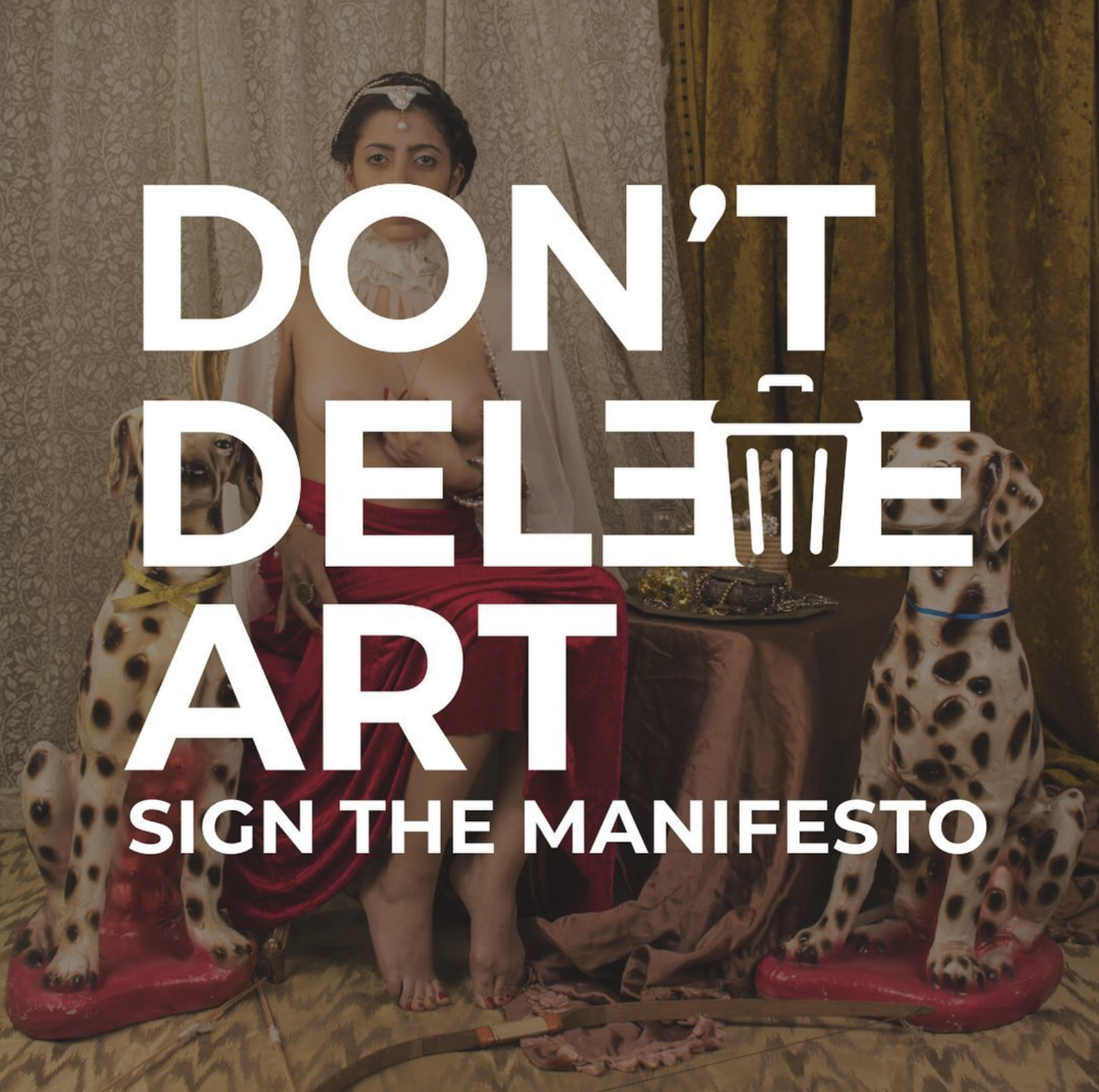
Tales of artists outraged at having their work removed from social media platforms for nudity or political material owing to vaguely stated “community standards” rules are legion. The trouble was already such that Instagram organized a roundtable of artists and museum leaders in 2019 to discuss the problem, as reported in ARTnews, and hashtag campaigns like #FreeTheNipple have taken off.
Now, a group of artists and activists led by PEN America’s Artists at Risk Connection and the Don’t Delete Art Coalition are planning a day of protests outside major New York museums on Thursday, June 15. They will start out at the Whitney Museum of American art at 11 a.m., heading to Parsons School of Design, the Magnum Foundation, the New Museum, and the International Center of Photography Museum, before winding up at the headquarters of Meta, the parent company of Facebook and Instagram.
“Digital spaces are one of the last vanguards for artists to safely post their work and reach large audiences, particularly as repression and censorship increase worldwide,” said Julie Trébault, director of Artists at Risk Connection, which has published a schedule of events.
Don’t Delete Art grew out of a collaboration between artist-activists, art collectors and human rights organizations, and came together in March 2020 under the auspices of the National Coalition Against Censorship. Its founding curators were PEN America’s Artists at Risk Connection, the human rights organization Article 19, IBEX collectors, the collective International Arts Rights Advisors, international NGO Freemuse, and artists Savannah Spirit and Spencer Tunick. Arts writer Emma Shapiro would later join as editor-at-large, launching a newsletter with Spirit.
The roster of artists who have been censored on social media and whose stories are highlighted on DDA’s website includes well-known figures like Carolee Schneemann, Betty Tompkins, and Tunick, as well as a host of lesser-known artists.
The images range from classic nudes to more racy images, but nudity and sexuality aren’t the only things that have gotten people banned. A Dread Scott window installation consisting of the text, “White people can’t be trusted with power,” was classified as hate speech by Instagram. The company later reversed the decision without comment.
More Trending Stories:
Is Time Travel Real? Here Are 6 Tantalizing Pieces of Evidence From Art History